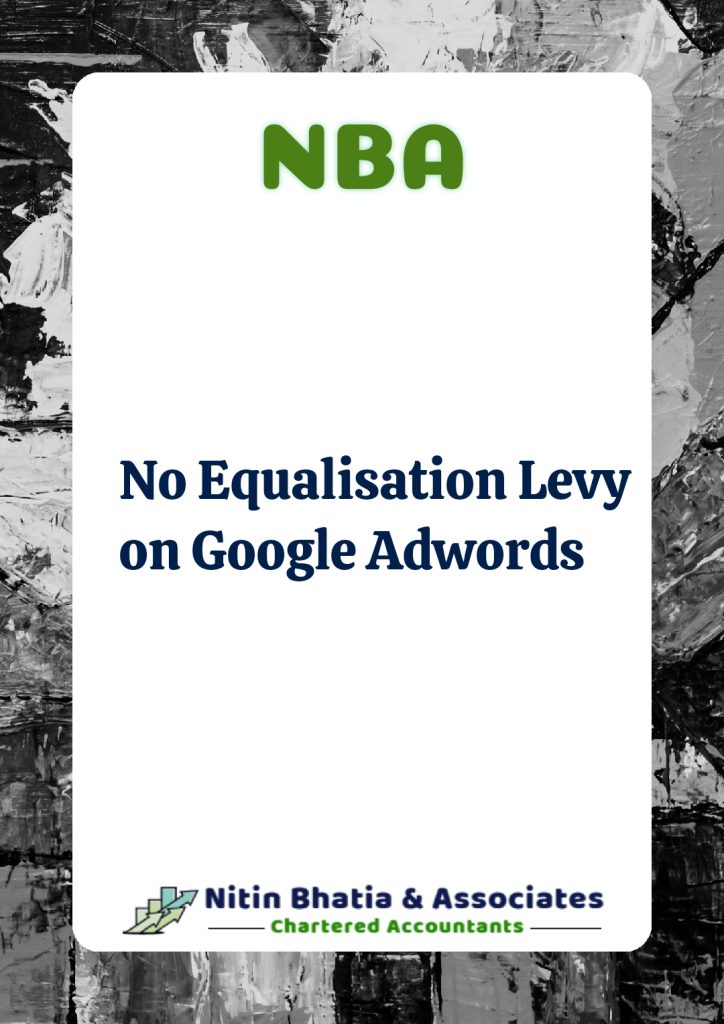
The ITAT in Jaipur recently dismissed the Revenue’s appeal and held that the Assessee, an individual service provider of online advertisement, digital marketing and web design for consultancy charges, was not liable for disallowance under Section 40(a)(ib) of the Income Tax Act, 1961. The Assessee was initially subjected to disallowance of Rs. 8.89 Crore for not charging the Equalisation Levy on the AdWords charges paid to Google Singapore, which does not have a Permanent Establishment (PE) in India.
The Revenue had argued that the payment made for digital advertisement fell within the scope of Section 165(1) of the Finance Act, 2016 and did not attract the exceptions of Section 165(2). The CIT(A), however, observed that the Assessee acted as a conduit for his foreign clients where the target audience was also located abroad and India was only the jurisdiction for fund transfer. As a result, the CIT(A) held that the Assessee was not liable to charge the Equalisation Levy. The CIT(A) further observed that the statutory requirements for the service recipient to be either an Indian resident with a business or profession in India or a non-resident with a Permanent Establishment (PE) in India were not satisfied in the case at hand.
On the Revenue’s appeal, the ITAT observed that the only dispute in the appeal was whether the online advertisements that were of non-jurisdictional areas were subjected to the Equalisation Levy or not. The ITAT upheld the appellate order by observing that the Revenue could not argue against the fact that the person running the advertisement, the person displaying the advertisement, and the person using that advertisement were all outside India.
The ITAT categorically held that, in substance, the Assessee was only acting as a conduit for channelizing the funds from the person wanting to advertise on Google. The ITAT also held that the Equalisation Levy did not apply in the present case since the intention of the levy was the targeted audience and the party paying for the online advertisement, who in the present case had no relation with India.
In conclusion, the ITAT’s judgment was in favor of the Assessee and related to the Assessment Year 2018-19. The ITAT held that the Assessee was not liable for disallowance under Section 40(a)(ib) for not charging the Equalisation Levy on payment made to Google Singapore for AdWords. The ITAT observed that the transaction did not attract the Equalisation Levy as the advertisers and target audience were both located abroad
(Related Assessment year : 2018-19) – [DCIT v. Prakash Chandra Mishra – Date of Judgement: 07.10.2022 (ITAT Jaipur)







